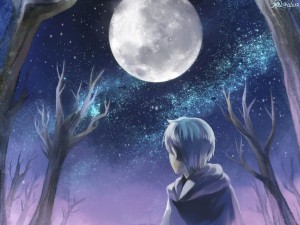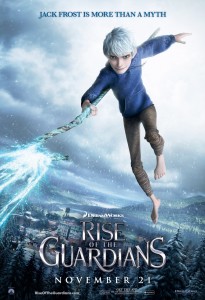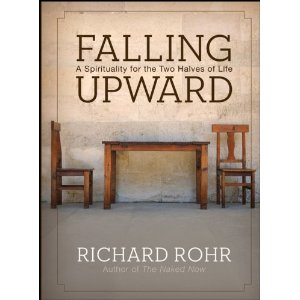 By Scott T. Allison and George R. Goethals
By Scott T. Allison and George R. Goethals
In November of 2012, Paramount Pictures released a film called Rise of the Guardians, based loosely on William Joyce’s The Guardians of Childhood book series. The opening scene of the movie is jarring. The dead body of an adolescent boy, Jack, floats upward toward the ice-covered surface of the lake in which he has just drowned. We see what Jack would see were he alive – a jagged hole in the ice above him, growing closer as he rises in the water, and beyond that hole we see an impossibly big, beautiful full moon shining down on his lifeless body.
You probably know the rest of the story. Not because you’ve necessarily seen the movie or because the story is particularly predictable. You know it because the tale of the hero’s journey has been told countless times in different forms across all human cultures. Our hero, Jack, is dead physically but not dead in spirit.  That beautiful moon, which pulled him toward its light, decides to endow Jack with immortality along with the power to create instant snow and ice. He is now Jack Frost.
That beautiful moon, which pulled him toward its light, decides to endow Jack with immortality along with the power to create instant snow and ice. He is now Jack Frost.
Rise of the Guardians is a secularized version of an ancient tale of God’s role in creating and assisting heroes on their journeys. The moon, of course, symbolizes a divine or higher power, a source of immense light, wisdom, and authority. The moon is also a mystery to Jack; he does not know why the moon has transformed him into Jack Frost, nor does he understand why the other guardians of the world – Santa Claus, the Easter Bunny, and the Tooth Fairy — wish to recruit him into their heroic fold to fight the story’s villain. Jack’s efforts to infer the moon’s intentions and motives are a recurring theme in the film.
The spiritual significance of the hero’s journey has been aptly described by Richard Rohr in his 2011 book Falling Upward. Rohr argues that all heroes are summoned by a higher power to a great journey, and that the catalytic agent of this journey is some type of death, deficit, or wounding suffered by the hero. The story is as old as the fall of Adam and Eve in the first chapter of Genesis, and it emerges in countless stories of ugly ducklings, Cinderellas, and other underdogs who through magic or divine intervention turn their wounds into triumph.
In Rise of the Guardians, the large, luminous moon pulls Jack toward its light in a manner consistent with many accounts of near-death experiences. His physical failing is necessary for his spiritual rising and for his true identity to emerge. In his new life as Jack Frost,  the boy is tormented by the fact that no one can see him or his icy cold handiwork. For centuries he remains unrecognized and unloved, and he is haunted by his lack of memory over the circumstances of his death in the icy waters.
the boy is tormented by the fact that no one can see him or his icy cold handiwork. For centuries he remains unrecognized and unloved, and he is haunted by his lack of memory over the circumstances of his death in the icy waters.
With the help of another character, Baby Tooth, Jack’s memory is restored. He comes to understand that he died on the icy lake while saving his sister’s life, thus illuminating his destiny as a deserving guardian. This knowledge empowers Jack to complete the heroic journey that the moon set in motion centuries earlier. He uses his wounds to transform himself and to redeem the world, much like the crucifixion and resurrection of Jesus in the New Testament. Richard Rohr argues that nearly all hero stories follow this pattern. Unlocking the divine secret of our wounds is the surest path to heroism.
Rise of the Guardians is not the best film of 2012, nor is it the best hero story of the year. But it skillfully uses the classic elements of the hero’s journey to craft a compelling tale of loss, pain, transformation, and redemption. The moon’s portrayal of a higher power that instigates the entire journey is unmistakable. Richard Rohr believes that a higher power summons all humans on this heroic path. Our falling is necessary for our rising, with setbacks serving as the essential redemptive seeds of our own heroism. Rohr quotes Julian of Norwich: “First, there is the fall, and then we recover from the fall. Both are the mercy of God.”
Being non-religious, I don’t believe in higher powers– just higher standards. Certainly divine intervention is a common theme in folklore and fiction, since all cultures that we know of have included some form of occult beliefs; these beliefs can still be useful as metaphor in modern fiction (e.g. the image of the little angel and devil hovering over your shoulders as you struggle to do the right thing). However, the idea that a higher power is necessary for heroism shows a terrible underestimation of the potential of the Human spirit. People are heroic because it is Human nature to be heroic. In fact, the plot of this movie, possibly unintentionally supports that belief. The catalyst for the transformation was Jack sacrificing himself to save his sister. The moon did not change Jack into a hero– the moon changed Jack because he was already a hero.